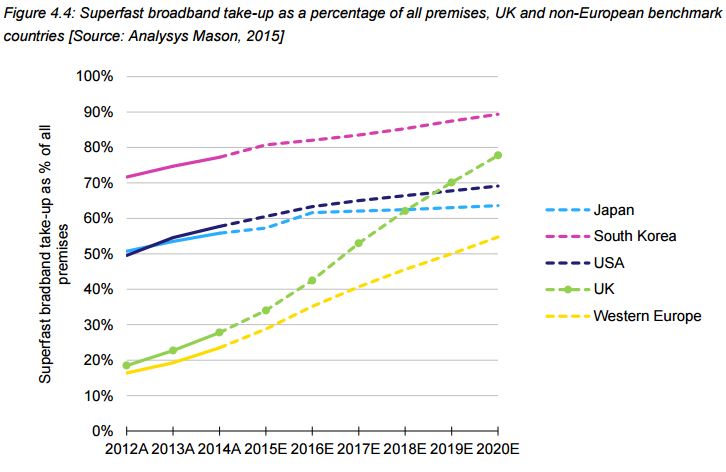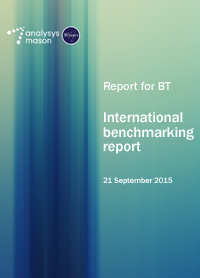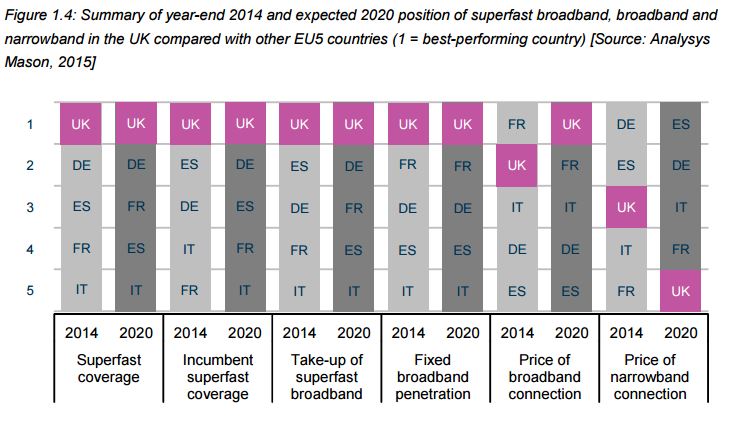Analysys Mason Report: UK staying ahead of the curve for the next 5 years
Analysys Mason today published a report comparing the UK’s fixed telecoms market to the five major European countries and several other leading digital countries. It found that the UK is currently ahead of its European competitors on measures such as average speed*, superfast broadband coverage and take-up and will soon be outperforming countries such as Japan and the USA.
In line with Ofcom’s European Broadband Scorecard the report examines France, Germany, Italy and Spain as well as Japan, South Korea and the USA. Each country is measured against superfast coverage, average download speed, take-up, price and competition (issues such as local loop penetration and incumbent’s share of various markets). Factual figures are used for up to 2014 with Analysys Mason forecasting out to 2020.
As can be seen from the diagram below, the UK is currently leading this EU5 grouping on a range of metrics, apart from the price of narrowband connections. Analysys Mason draw a strong comparison between the UK’s success in these metrics and the level of competition that they found in the UK compared to the other countries.
The report looks into each area in more detail but it is interesting that Analysys Mason forecasts the UK to broadly maintain its lead over EU5 countries and overtake the USA in superfast broadband coverage. This coupled with low prices is seen to be driving take-up, with the UK forecast to overtake even Japan in this measure:
The report also compares several interventions into the broadband market. Whilst there remains some argument around the total amount invested by BT into the BDUK areas, Analysys Mason found that the final funding for the UK Government will be around £190/premise v Singapore’s £639 and Australia’s planned £2915/premise plan.
The report’s future estimates are of course open to challenge and will no doubt be subject to future revision. However, it is a useful reminder that the UK is better placed than we sometimes give ourselves credit for and that we are not too far behind countries such as Japan and South Korea.
* As the report rightly points out: “Producing consistent data on downstream bandwidths is problematic??? with a large variation in results provided by companies such as Ookla and Akamai.






